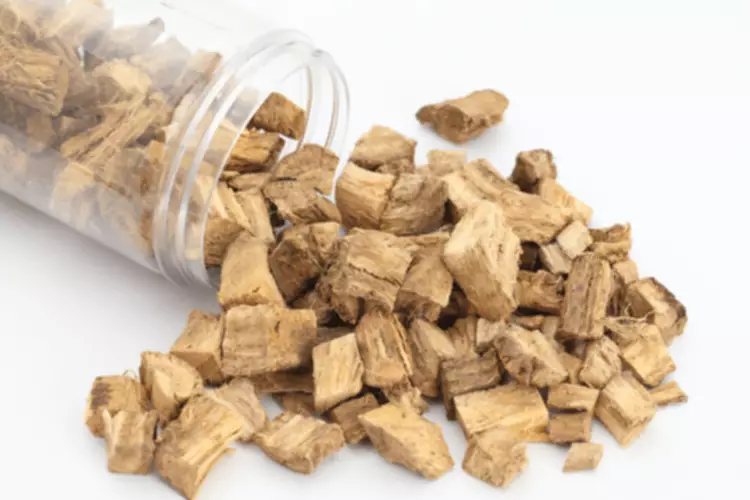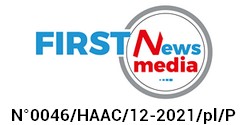Content
Dr. Hoffman is the Co-Founder and Chief Medical Officer of AddictionHelp.com and ensures the website’s medical content and messaging quality. For safety reasons, you should consult with your primary care doctor to check for any safety concerns about consuming alcohol if you already have high blood pressure. The Association for Addiction Professionals represents the professional interests of more than 100,000 addiction-focused health care professionals in the United States, Canada and abroad. Next, drink some water and electrolytes to rehydrate as alcohol tends to dehydrate the body, which makes it harder for your liver to process the alcohol you’ve already consumed.
Alcohol is a depressant as opposed to a stimulant, which means it slows down your brain’s ability to control your body. As a result, you might notice you speak and move more slowly, but the effects of alcohol go deeper. Doctors believe booze disrupts your heart’s natural pacemaker — the electrical signals that are supposed to keep it beating at the right pace. It’s also important to know that the ways in which alcohol affects your heart will vary from person to person, depending on your age and other conditions you may have. Since the kidneys excrete a tenth of ingested alcohol, toxicity in these organs is expected, which could enhance inflammation and renal damage in hypertensive patients. However, chronic kidney disease appears to be less common among drinkers.
Cheyne 2004 published data only
There’s a popular belief that alcohol — especially red wine — is good for the heart. In addition to increasing the effects of blood pressure medicine, alcohol also causes a drop in blood pressure right after it is used. This effect, combined with the increased effects of blood pressure medicine, can lead to drops in blood https://ecosoberhouse.com/ pressure that can cause dizziness or even make you pass out. Alcohol causes a brief drop in blood pressure in the 12 hours after it is used but then creates a prolonged elevation in blood pressure. When alcohol is used repeatedly, the elevated blood pressure becomes chronic, leading to long-term high blood pressure.
Rosito 1999 reported the effects of 15, 30, and 60 g of alcohol compared to placebo on healthy male volunteers. According to our pre‐specified dose categories, both 15 g and 30 g of alcohol fell under the medium dose category. Including both of these doses or de‐selecting either one of these doses from Rosito 1999 from Analysis 2.1 and Analysis 2.2 (medium doses of alcohol) resulted in the same statistically significant conclusion. The blood alcohol level decreased over time, and 20‐HETE started to rise (Barden 2013). The hypertensive effect of alcohol after 13 hours of consumption could be the result of the rise in vasoconstrictors and the homeostatic response to restore blood pressure.
Top Reads About Alcohol Addiction
An abnormal heart rhythm can reroute the heart’s electrical impulse around the scar tissue and create a dangerous short circuit. People who are elderly or obese or who have high blood pressure are at higher risk of problems from abnormal heart rhythms. To determine short-term dose-related effects of alcohol versus placebo on heart rate in healthy and hypertensive adults over 18 years of age. A single drink had little effect on blood pressure, but when people consumed two drinks, they experienced a slight dip in their blood pressure levels in the hours that followed.

Someone who is detoxing from alcohol usually has elevated blood pressure. This problem is worse in people who drink heavily or have been drinking for longer time periods. The heart circulates blood throughout the body by creating pressure that moves the blood through blood vessels.
Ueshima 1987a published data only
Heart rate was increased following alcohol consumption regardless of the dose of alcohol. Alcohol has been shown to slow down parasympathetic nervous activity and to stimulate sympathetic nervous activity. Hering 2011, Carter 2011, and Spaak 2008 reported an increase in muscle sympathetic nervous activity (MSNA), which persists for at least 10 hours after consumption. The vagus nerve is a component of the parasympathetic nervous system and is largely responsible for regulation of the heart rate at rest. Rossinen 1997 and Van De Borne 1997 reported withdrawal of vagal tone and reduced heart rate variability within an hour after alcohol consumption; this explains the increased heart rate. Buckman 2015, Van De Borne 1997, and Fazio 2001 also reported reduced baroreflex sensitivity following alcohol consumption.
Does a glass of wine lower blood pressure?
Myth: Red wine lowers blood pressure.
In fact, alcohol actually raises blood pressure. But since alcohol tends to relax people, it may lower your blood pressure slightly — although only for a short period of time, and it won't help with chronic hypertension.
However, with another drink, breathing slows down further, impacting the amount of oxygen in the blood. While changes in your heart rhythm after drinking aren’t always a cause for concern, there are some things you need to know. High blood pressure occurs when blood pushes too hard against the walls of the arteries as it flows through them. If left untreated, high blood pressure can lead to complications like aneurysms, eye problems, heart attacks and strokes. Heavy drinking, or more than three drinks a day, bumps up your risk even more. Studies suggest that for every extra daily drink, your risk goes up by 8%.
More RCTs are needed to study the effects of low‐dose alcohol to better delineate the dose‐response effects of alcohol on BP and heart rate. RCTs with measurements more than 24 hours after alcohol consumption are needed to see how long the effect of high‐dose acute alcohol consumption lasts. This systematic review provides us with a better understanding of the time‐course of alcohol’s acute effects on blood pressure and heart rate. This review included only short‐term randomised controlled trials (RCTs) investigating the effects of alcohol on blood pressure and heart rate. Acute alcohol consumption mimics the pattern of social drinking, and evidence indicates that even one glass of an alcoholic drink can increase heart rate.
- Although past studies have shown some heart benefits of moderate drinking, research hasn’t shown a definitive link between alcohol and better heart health.
- Doctors can help people figure out other medication or lifestyle changes that can help people manage their blood pressure levels.
- Another reason behind the heterogeneity was probably the variation in alcohol intake duration and in the timing of measurement of outcomes across the included studies.
- Someone who consistently drinks two or more beers a day is at an increased risk of having high blood pressure.
“The myth that wine is beneficial for heart health is no longer true,” she states. With moderate doses of alcohol, blood pressure (BP) went up for up to seven hours but normalized after that. A biphasic response was observed with high doses of alcohol, with an initial decrease in both systolic and diastolic blood pressure (SBP and DBP, respectively) for up to 12 hours, increasing at more than 13 hours from consumption.
Because alcohol and cholesterol medicine both are processed through your liver, they are, in a sense, competing for clearance. So, it’s important to think about your overall health and talk to a healthcare provider about your personal risk factors. Two review authors (ST and CT) independently extracted data and assessed the quality of included studies. Mean difference (MD) from placebo with 95% confidence interval (CI) was the outcome measure, and a fixed-effect model was used to combine effect sizes across studies. Dr. Kistler’s research has shown that in people with recurrent arrhythmias who were regular drinkers, giving up alcohol cut their rate of events in half.
If a blood clot lodges in an artery within the brain, an ischemic stroke can occur. The belief that a glass of wine a day keeps the doctor away owes its force of conviction to the French Paradox. This paradox was discovered in 1992 and is based on the observation that France has historically low rates of heart disease despite the characteristic French diet of bread and cheese. Upon this discovery, researchers theorized that the common preference for red wine among the people of France holds the key to the paradox.
Because the participant population comprised predominantly young and healthy normotensive men, the overall evidence generated in this review cannot be extrapolated to women and older populations with other comorbidities. There is likely a dose‐response effect of alcohol on BP, as the effects of alcohol appeared to last longer with higher doses. We intended to find out the dose‐dependent changes in SBP, DBP, mean arterial pressure (MAP), and HR after consumption of a single dose of alcohol.

All extracted data were entered and double‐checked in RevMan 5.3 software (Review Manager (RevMan)). Even though moderate drinking may be safe for many people, there are still risks. Moderate drinking can raise the risk of death from certain cancers and heart diseases. https://ecosoberhouse.com/article/how-does-alcohol-affect-your-blood-pressure/ Alcohol abuse refers to the excessive or problematic consumption of alcohol that interferes with a person’s daily life and health. It can lead to various negative physical and mental health effects, including liver damage, depression, and high blood pressure.

